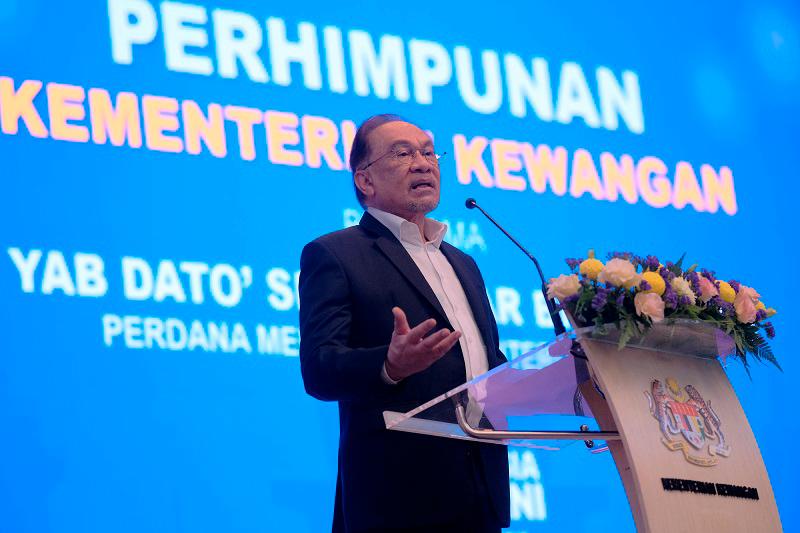PUTRAJAYA: Internal stability and strength are crucial foundations for Malaysia to play a meaningful role at the regional and international levels, including within the ASEAN cooperation framework, Prime Minister Datuk Seri Anwar Ibrahim said.
Speaking at the Finance Ministry’s (MoF) monthly assembly here today, Anwar said noble intentions to assist other nations, such as Myanmar or Gaza, may not be realised if Malaysia fails to manage itself transparently and effectively.
“If our country is unstable, poorly governed and focused only on personal or family wealth, then any noble intention to help countries like Myanmar or Gaza will be meaningless,” he said.
In this regard, Anwar called for good governance and sound economic management as the foundation to strengthen Malaysia’s role in ASEAN.
The prime minister also expressed appreciation to MoF staff for successfully organising last week’s ASEAN Finance Ministers’ Meeting.
He said the quality of discussions and the focus on major issues made the meeting a proud achievement for Malaysia as this year’s ASEAN Chair.
“To Finance Minister II Datuk Seri Amir Hamzah, Treasury secretary-general Datuk Johan Mahmood Merican, the deputies and all involved – congratulations,” he said.
The 12th ASEAN Finance Ministers and Central Bank Governors’ Meeting (AFMGM), which concluded recently, successfully reinforced regional financial integration and cooperation.
AFMGM and its related meetings were held at the Kuala Lumpur Convention Centre (KLCC) from April 7 to 10 with around 300 delegates in attendance, including ASEAN finance ministers, central bank governors, officials from international financial institutions and private sector representatives.
On ASEAN’s future direction, Anwar stressed the importance of focusing on issues within the region’s control and capabilities, such as strengthening intra-ASEAN economic cooperation, rather than being consumed by international conflicts that are difficult to resolve.
He cited practical initiatives like expanding the use of local currencies in regional trade, including through mechanisms like the Chiang Mai Initiative (CMI).
“We’ve started with about 20 per cent of trade transactions between Malaysia, Indonesia and Thailand now conducted in local currencies. These are early successes, but there remains vast potential to grow trade among ASEAN countries,” he said.
The CMI is a multilateral currency swap arrangement involving the 10 ASEAN countries along with China, Japan and South Korea (ASEAN+3). It was established in the aftermath of the 1997 Asian Financial Crisis to strengthen the region’s financial safety net.
Anwar also reflected on the founding vision of ASEAN by earlier leaders such as the late Tun Abdul Razak, who aspired for Southeast Asia to be a peaceful and neutral zone, free from the influence of major powers during the Cold War era.
“Today, we call it the principle of centrality – maintaining good relations with all parties without sacrificing the interests of our nation and the region,” he added.









